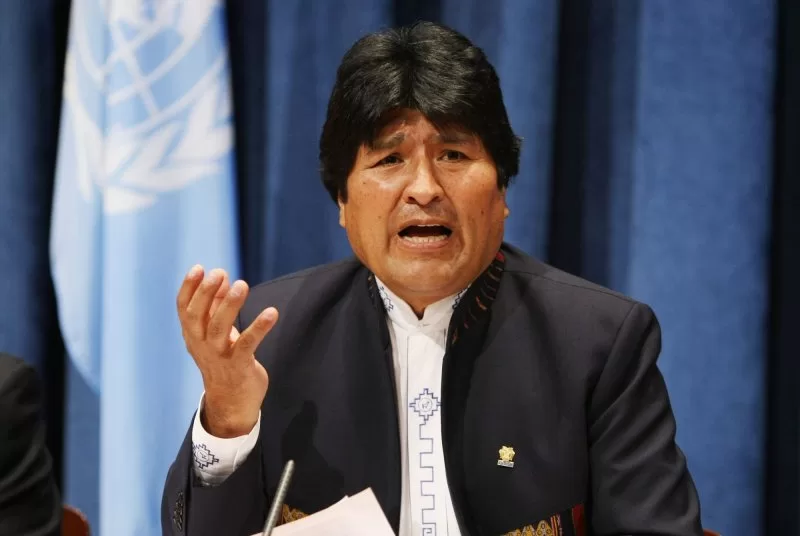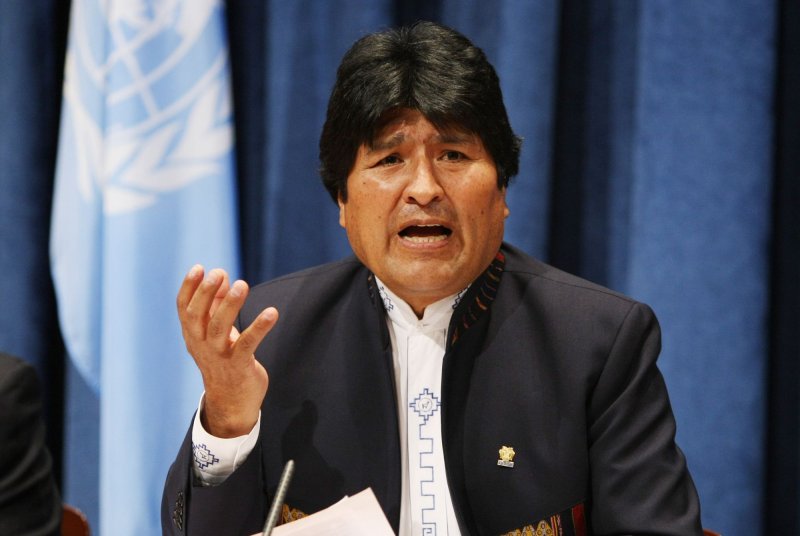Bolivia’s President Evo Morales speaks during a press conference during the Millennium Development Goals Summit at the United Nations on September 21, 2010 in New York. File Photo by Monika Graff/UPI |
License PhotoOct. 27 (UPI) — Evo Morales, the former president of Bolivia, said Sunday that four masked men fired on his car as he was headed to a church event.
“This was the assassination attempt that occurred at 6:20 a.m. at the entrance of the Novena in the municipality of Shinahota,” Morales said in a statement on Facebook, with video purporting to show bullet holes through his car’s windshield.
Morales said he was on his way to a residential area called Lauca Ñ for his normal Sunday program when two vehicles, apparently Toyota Tundras, intercepted his car.
“Four masked and black-clad individuals armed with guns got out and began shooting,” he said. Some of his followers have already suggested online that the incident was an attempted assassination. UPI was unable to independently verify the video’s contents.
Morales, 65, grew up in a poor farming family and rose to popularity in the 1980s as a labor activist and leader in coca growers’ unions. He cofounded the political party Movement for Socialism and led Bolivia from 2006 to 2019 as its first indigenous president.
In office, Morales championed economic reform policies to nationalize the country’s oil and gas industries, as well as social programs for the poor and advocating for strong environmental and anti-imperial stances, making him popular among his people.
However, Morales sparked controversy and accusations of authoritarianism when Bolivia’s constitutional court ruled that he could run for a fourth term, even after a constitutional referendum failed to allow him to again seek the nation’s highest office.
Ultimately, Morales won the fourth election in October 2019 amid allegations of voter fraud but resigned under pressure from the military and mass protests that November, seeking asylum in Mexico and Argentina.
He returned from exile after MAS candidate Luis Arce won the presidential election in October 2020 against interim President Jeanine Áñez.
But Morales issued an ultimatum to Arce in late September, calling for several ministers he accused of corruption and racism to be replaced, in addition to his addressing of Bolivia’s fuel shortages.
Morales warned he would continue mobilizing protests if his concerns were not addressed, as the two former allies prepare for Bolivia’s 2025 election.
The protests have been ongoing since at least February and Arce’s government has accused Morales of attempting to destabilize his administration.

